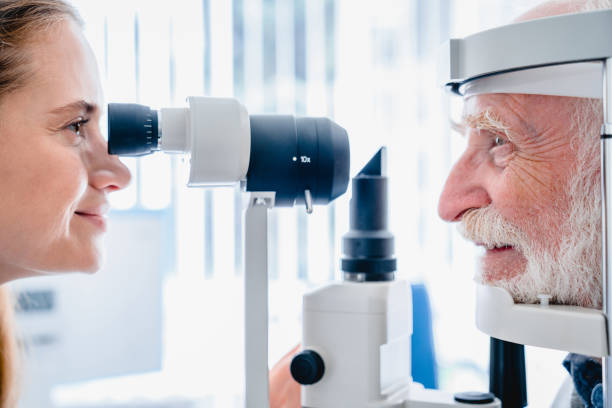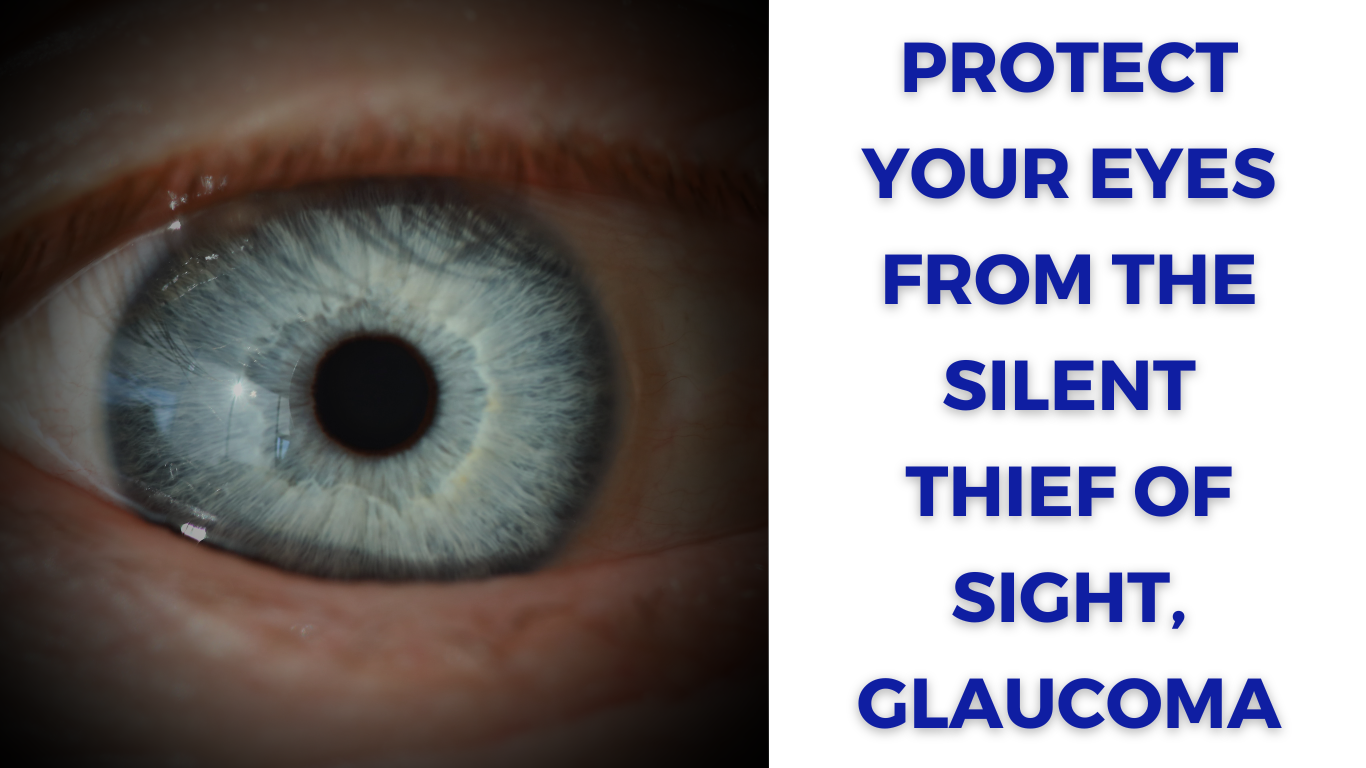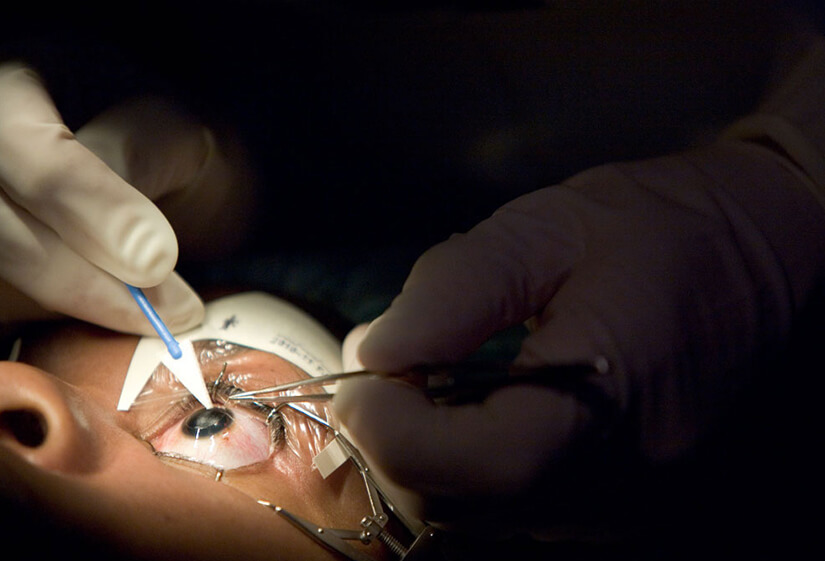You should consider seeing a glaucoma specialist if:
- A specialist who can help manage and treat the condition should be consulted if you have been diagnosed with glaucoma.
- You have a family history of glaucoma: If you have a family history of glaucoma, you may be at a higher risk of developing the condition, and it’s important to have regular eye exams and screenings with a glaucoma specialist.
- You have risk factors for glaucoma: If you have certain risk factors for glaucoma, such as being over the age of 60, having high eye pressure, or having a history of eye injuries, you should consider seeing a glaucoma specialist.
- You are experiencing symptoms of glaucoma. If you are experiencing symptoms of glaucoma, such as vision loss, eye pain, or redness, you should see a glaucoma specialist as soon as possible.
- If treatment for glaucoma is not yielding a response or if your condition is worsening despite treatment, you should consult a glaucoma specialist to explore other treatment options.
A specialist can provide expert care and help prevent vision loss and other complications associated with this condition.
Glaucoma specialist near me:
If you are looking for a glaucoma surgeon type or near glaucoma specialist near me, look on Google.
What are the three main types of glaucoma?
The three main types of glaucoma are:
Primary open-angle glaucoma (POAG): This is the most common type of glaucoma, accounting for about 70% of all cases. In POAG, the drainage canals in the eye become clogged over time, leading to increased pressure in the eye that can damage the optic nerve.
Angle-closure glaucoma: This type of glaucoma occurs when the iris (the colored part of the eye) is too close to the drainage canals in the eye, blocking them and causing a sudden increase in eye pressure. Angle-closure glaucoma is less common than POAG, but it can cause more severe symptoms and requires immediate medical attention.
In normal-tension glaucoma, the optic nerve sustains damage despite the eye pressure remaining within the normal range. While the exact cause of normal-tension glaucoma is not fully understood, it may be connected to factors such as poor blood flow to the optic nerve or other elements.
What are the symptoms of glaucoma?
Glaucoma is a group of eye conditions that cause damage to the optic nerve, which can lead to vision loss or blindness if left untreated. The symptoms of glaucoma may vary depending on the type and stage of the condition, but some common signs and symptoms may include:
Loss of peripheral vision: The most common symptom of glaucoma is the loss of peripheral vision, which may progress to tunnel vision.
Blurred or hazy vision is another common symptom, which can occur in one or both eyes.
Halos around lights: Glaucoma can cause halos or rainbow-colored rings around lights, especially at night.
Pain or discomfort in the eyes: Some people with glaucoma may experience eye pain or discomfort, especially during or after activities that increase eye pressure, such as bending over or lifting heavy objects.
Redness in the eyes: Glaucoma can cause redness or inflammation in the eyes, which may be accompanied by itching or tearing.
It is important to note that in many cases, glaucoma has no symptoms until significant vision loss has occurred. Regular eye exams with an ophthalmologist or optometrist are essential for the early detection and treatment of glaucoma.

What are the tests that a glaucoma specialist may perform?
Glaucoma specialists may perform various tests to diagnose and manage glaucoma, a condition that damages the optic nerve and can lead to vision loss. Some of the common tests that a glaucoma specialist may perform are:
Tonometry: Tonometry is an important test for those with concerns about their eye pressure. This test can help to identify if someone has glaucoma, iritis, or other conditions. High eye pressure is a significant risk factor for glaucoma.
Visual field test: This test checks for any defects in the field of vision caused by glaucoma.
Optical coherence tomography (OCT): This test uses light waves to capture detailed images of the retina and optic nerve.
Gonioscopy: This test evaluates the drainage angle in the eye, which can affect the outflow of fluid and increase eye pressure.
Pachymetry: This test measures the thickness of the cornea.
Dilated eye exam: This test allows the specialist to examine the optic nerve and retina for any signs of damage.
Fundus photography: This test takes detailed photographs of the optic nerve and retina for further analysis.
Based on the test results, the glaucoma specialist can recommend appropriate treatment options to manage the condition and prevent further vision loss.

What are the possible causes of glaucoma?
Glaucoma refers to a group of eye conditions that damage the optic nerve. If the optic nerve is damaged, it can lead to vision loss or even blindness. Some early signs of glaucoma include vision changes, such as seeing halos around lights. Possible causes of glaucoma include:
Increased pressure inside the eye (intraocular pressure): This is the most common cause of glaucoma, and it occurs when the fluid inside the eye (aqueous humor) cannot drain properly.
Genetics: Certain genetic mutations may increase the risk of developing glaucoma.
Age: Just as people get wrinkles and gray hair as they age, their risk of glaucoma increases as well.
Medical conditions: People with certain medical conditions, such as diabetes or high blood pressure, may have an increased risk of glaucoma.
Eye injuries: Injuries to the eye or surgery can sometimes lead to glaucoma.
Use of corticosteroid medications: The long-term use of corticosteroid medications, such as prednisone, can increase the risk of developing glaucoma.
Ethnicity: People of African, Hispanic, and Asian descent may be at higher risk for certain types of glaucoma.
It is important to note that in some cases, the exact cause of glaucoma may not be known. Regular eye exams can help detect early signs of glaucoma, which is important for timely treatment and preservation of vision.
What are the treatments for glaucoma?
Glaucoma is a progressive eye disease that damages the optic nerve and can lead to permanent vision loss. Treatment for glaucoma typically focuses on lowering intraocular pressure (IOP), which is the pressure inside the eye. The following are some common treatments for glaucoma:
- Eye drops: Medications in the form of eye drops are usually the first line of treatment for glaucoma. These drops lower the intraocular pressure by reducing the amount of fluid produced in the eye or by improving the drainage of the fluid out of the eye.
- Laser therapy: There are several types of laser therapy used to treat glaucoma. One of the most common is selective laser trabeculoplasty (SLT), which uses a low-energy laser to improve the drainage of fluid from the eye, thus lowering the intraocular pressure.
- Surgery: If eye drops and laser therapy are not effective, surgery may be required. The most common surgical treatment for glaucoma is trabeculectomy, which involves creating a tiny opening in the eye to allow fluid to drain out, thus lowering the intraocular pressure.
- Micro-invasive glaucoma surgery (MIGS): This is a newer type of surgery that involves using tiny incisions and small devices to improve the drainage of fluid from the eye.
- Oral medications: In rare cases, oral medications may be prescribed to lower the intraocular pressure.
It’s important to note that while these treatments can help to slow down the progression of glaucoma and preserve vision, they cannot cure the disease or reverse any damage that has already occurred. Regular eye exams and early detection are key to managing glaucoma effectively.
Conclusion
It’s important to see a glaucoma specialist if you experience any symptoms like vision changes, eye pain, or a family history of glaucoma. Regular eye exams are essential, especially as you age, to detect early signs and prevent further damage. Consulting a glaucoma specialist ensures proper diagnosis, treatment, and management to preserve your vision.
Author Details:
Dr. Sushruth Appajigowda holds a prominent position as a cornea, cataract, glaucoma, and LASIK surgeon in Bangalore. He serves as the chief cataract and refractive surgeon at Vijaya Nethralaya Eye Hospital, Nagarbhavi, Bangalore. Renowned as one of the finest LASIK surgeons nationwide, he brings with him over 12 years of experience across multiple LASIK platforms, including ZEISS, ALCON, SCHWIND, AMO, and Bausch and Lomb. Having successfully conducted over 5000 LASIK procedures, Dr. Sushruth holds the title of a Certified Refractive Surgeon and a Fellow of the All India Collegium of Ophthalmology. Furthermore, he stands as a distinguished speaker at various national and international Forums, using his expertise to guide you in selecting the most suitable procedure based on your health requirements.













